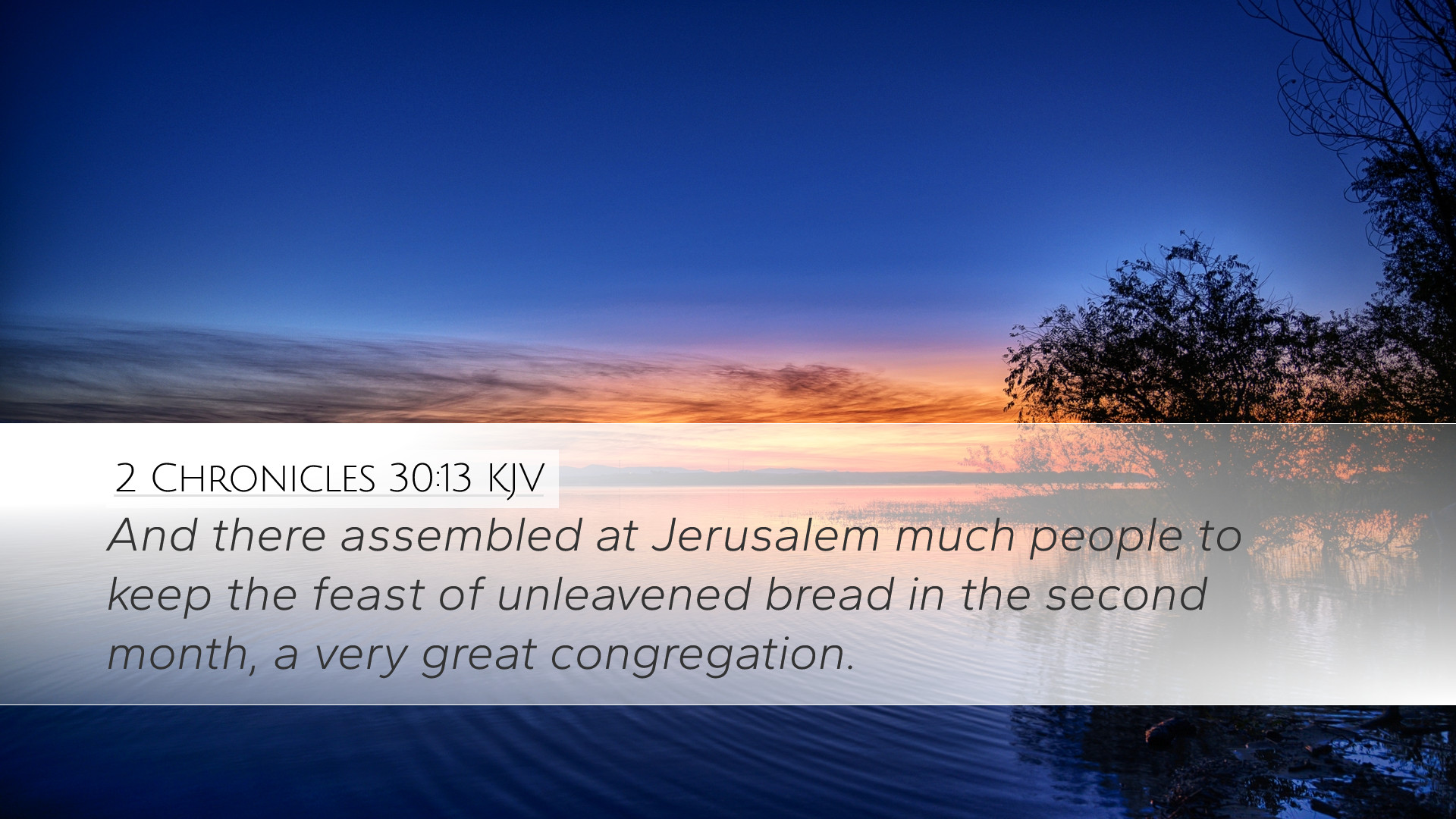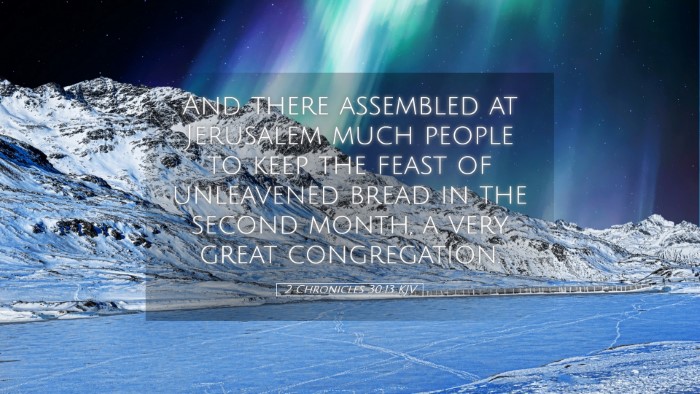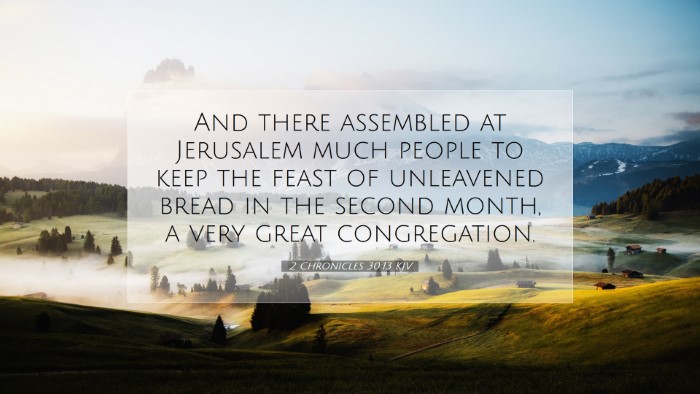Commentary on 2 Chronicles 30:13
In this verse, we find a remarkable example of God's people coming together to restore true worship and to reinstate the observance of the Passover. The context of this verse provides insight into the spiritual condition of Israel during this period, highlighting themes of repentance, unity, and divine favor.
Contextual Background
The events of 2 Chronicles 30 take place shortly after Hezekiah becomes king of Judah. Hezekiah is noted for his reforms aimed at revitalizing the worship of Yahweh, particularly after the preceding reign of Ahaz, characterized by idolatry and neglect of the Temple.
In this chapter, Hezekiah sends invitations throughout Israel and Judah to celebrate the Passover in Jerusalem, emphasizing unity among the divided kingdoms. The significance of this is twofold: it represents a return to covenant faithfulness and a call for restoration among the people.
Analysis of 2 Chronicles 30:13
“And there assembled at Jerusalem much people to keep the feast of unleavened bread in the second month, a very great congregation.”
Gathering of the People
Matthew Henry notes the phrase “much people” as indicative of a large assembly, showing that many responded to Hezekiah’s invitation. This gathering serves to underline the communal aspect of worship that the original Passover instituted.
Feast of Unleavened Bread
The celebration of the Feast of Unleavened Bread is critical as it directly follows Passover. It is a time when the people would remember their deliverance from Egypt, thus emphasizing their reliance on God for salvation. Albert Barnes elaborates that the event in the second month was an exception due to the inability to keep it in the first month, showcasing God’s mercy allowing for a late observance for those who were unable to prepare adequately.
The Second Month
Adam Clarke notes that the histroy of this delay demonstrates God's desire for His people to worship authentically rather than ritually; the two months instead of one indicates his willingness to accommodate sincere worshippers. This reflects God’s graciousness towards those who missed the initial observance and further illustrates a theme of inclusiveness to all who wished to return to Him.
Theological Themes
- Restoration: The passage demonstrates the importance of restoring proper worship and the pursuit of holiness among God’s people.
- Unity: The coming together of the Northern and Southern tribes underlines a restoration of unity, a sign of hope and healing within Israel.
- God's Mercy: Through allowing the delayed observance, we see a profound illustration of God’s mercy; He eagerly desires His people to celebrate Him despite their past failures.
Implications for Today
This account is a powerful reminder for contemporary believers of the importance of both personal and communal worship. It showcases an opportunity for renewal, calling the church to reflect on its practices and traditions in light of scripture.
Moreover, the passage invites a deep examination of what it means to prepare one’s heart for worship, highlighting the necessity of being spiritually ready to commemorate God’s acts of salvation. It provides an exhortation for congregations to gather, not just out of obligation, but as participants in a living history of God's redemptive work.
Conclusion
The assembly at Jerusalem during the Feast of Unleavened Bread in 2 Chronicles 30:13 stands as a testament to the longing of God’s people for His divine presence and righteousness. The collaborative act of returning to the Lord serves as a paradigm for the church today: to remember who God is, to recognize our need for His grace, and to gather in unity to celebrate His unfailing love.


